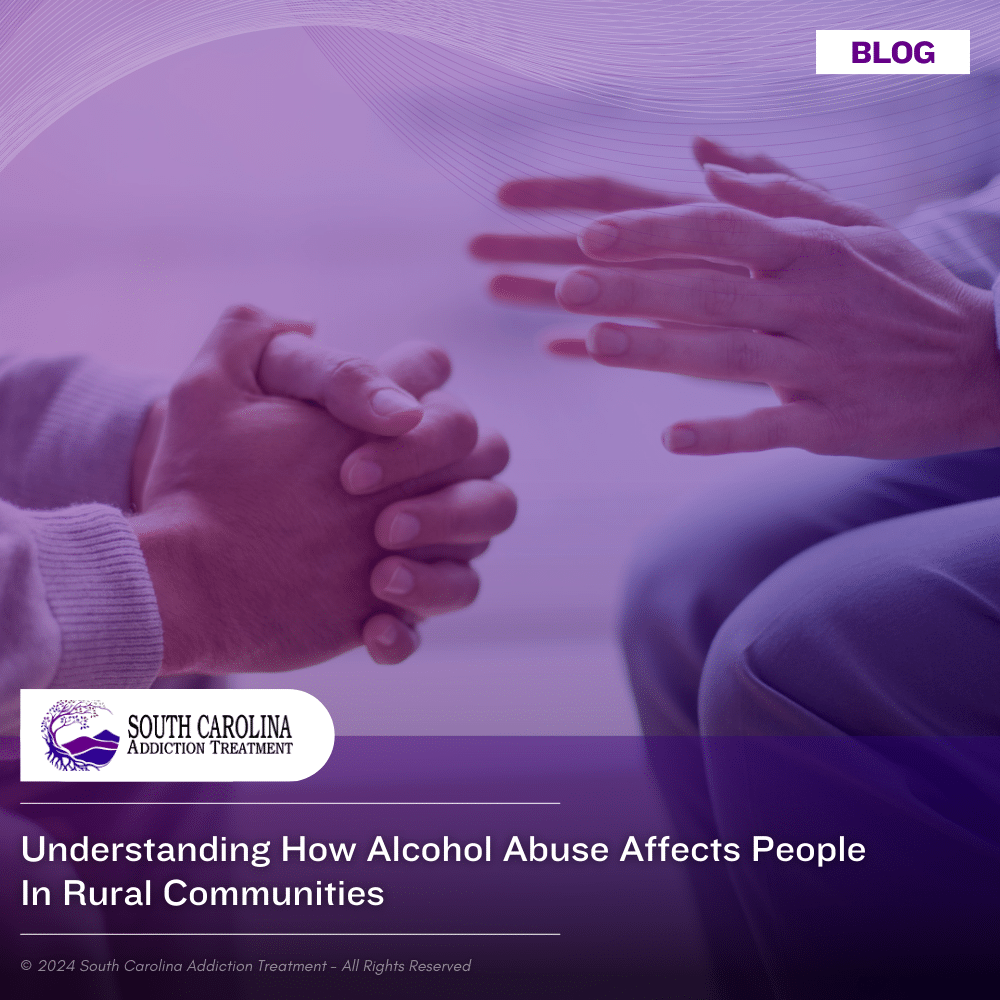Understanding How Alcohol Abuse Affects People in Rural Communities

Medically Verified: 2/1/24
Medical Reviewer
Chief Editor

All of the information on this page has been reviewed and verified by a certified addiction professional.
Alcohol abuse is a complex condition that affects millions of people in every part of the country. Many factors can contribute to someone developing alcohol abuse, including genetics, history of trauma, mental illness, and environment. Understanding the various causes of alcohol abuse can help people get the comprehensive treatment they need to recover from the condition.
According to research, the environment seems to play a significant role in a person’s likelihood of developing alcoholism. Alcohol abuse in rural areas is a problem facing communities outside of densely-populated areas. Several factors seem to contribute to higher rates of alcoholism in rural areas. Knowing why alcohol abuse is more common in rural areas can help people address the condition more effectively.
If you or someone you love live with alcoholism, reach out to the South Carolina Addiction Treatment staff today.
Understanding Alcohol Abuse in Rural Areas
According to the Rural Health Information Hub, 37% of young people in rural areas use alcohol, which is higher than those in urban areas.[1] Young people in rural areas are also more likely to binge drink. Tobacco use is also higher in rural communities. Illicit drug use, including marijuana use, is lower in rural communities compared to urban areas.
Alcohol abuse in rural areas leads to higher rates of physical disease, behavioral problems, addiction, accidents, and crime.
What Factors Lead to Increased Rates of Alcoholism in Rural Areas?
Alcoholism is a complex condition with many potential roots. There are several factors believed to increase the rates of alcoholism in rural areas.
Poverty
Poverty is a problem in rural America. People in rural areas often face fewer choices of employment, lower wages, and generational poverty. Bills that need to be paid, physically-demanding work, stagnant wages, healthcare costs, rising rent, unaffordable childcare costs– poverty can cause significant stress. Some people in poverty may turn to alcohol to relieve stress and anxiety.
Isolation
Some people living in rural communities may feel they are cut off from the world. They may not have the ability to travel, may see the same people day in and day out, feel stuck in their jobs or families, or feel isolated from others. Some may drink to ease loneliness or isolation.
Lack of healthcare
Pain and mental illness can lead people to self-medicate with drugs or alcohol. Many rural communities are isolated and lack resources to care for physical conditions and mental illness. Without access to these essential services, some may turn to something easily accessible–alcohol– for relief.
The Effects of Rural Alcoholism on Communities
Rural alcohol abuse and alcoholism harm communities and put people’s health and safety at risk. Some of the effects of rural alcoholism include:[1]
- Lower educational achievement
- Higher crime rates
- Increased physical illness
- More mental illness
- Higher rates of car accidents, violent crimes, and injuries related to alcohol use
- Higher suicide rates
Rural communities are often smaller and may feel cut off from larger, densely-populated areas. When one person lives with alcoholism, their actions are more likely to affect the entire community.
Rural communities are less likely to have the resources to address and treat addiction, including alcoholism. According to the National Rural Health Association, there are 40 physicians per 100,000 people in rural areas, compared to 53 per 100,000 in urban areas.[2] The medical system may be strained by higher rates of alcohol abuse in rural areas and lack the resources to offer comprehensive treatment.
Addressing Rural Alcohol Abuse
Rural communities should take steps to prevent alcohol abuse and provide treatment when needed. Medical providers, school staff, parents, and other community members can be valuable resources in the fight to prevent and address alcohol abuse.
Prevention
There are many things parents, medical providers, school staff, and others can do to prevent rural alcohol abuse, including:
- Screening at childhood medical visits to identify at-risk kids and families
- Increased training for law enforcement officers
- Creating in-school alcohol use prevention programs
- Holding community meetings to pool resources and increase awareness
- Creating community resources to support people in recovery and connect those with active addiction with the treatment they need
Taking steps to limit alcohol abuse in adolescents and young adults may reduce the rates of alcoholism in rural areas.
Treatment
First, it’s crucial to identify the signs of alcohol abuse and alcoholism. People abusing alcohol may exhibit physical, emotional, and behavioral symptoms that can be used to identify a problem. These include:
- Low motivation
- Falling behind at work or in school
- Changes in sleep, appetite, appearance, or behavior
- Neglected hygiene
- Secretive behavior
- Lying or covering up alcohol abuse
- Isolation
- Mood swings
Finding comprehensive treatment is essential. People must receive treatment for alcoholism’s physical, emotional, and behavioral aspects. This often includes a combination of evidence-based and holistic therapies like counseling, medications, stress management, and education.
Comprehensive alcoholism treatment is usually more difficult to find in rural areas. People may have to wait longer or travel further for the treatment they need. It’s important to be aware of resources in rural and urban areas and help people find the treatment they need to overcome substance abuse.
Get Help Now
South Carolina Addiction Treatment is a state-licensed and CARF (commission on accreditation of rehabilitation facilities) accredited substance abuse treatment facility. We are a dual-diagnosis facility with a primary focus on substance abuse. We offer individualized, extended-term treatment in an intimate setting located in Greenville / Simpsonville, SC.
If you or someone you love needs substance abuse treatment, contact the qualified admissions staff at South Carolina Addiction Treatment center today.
References:

